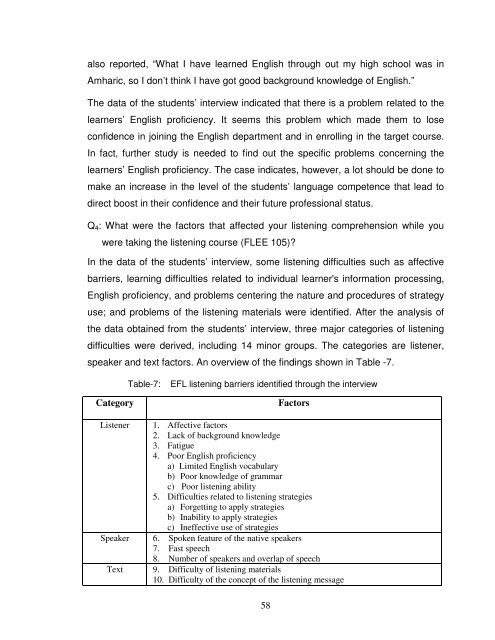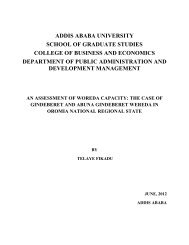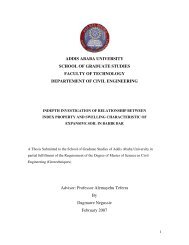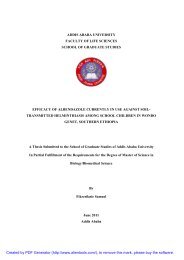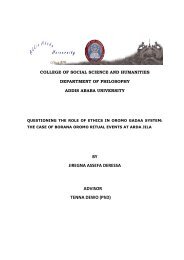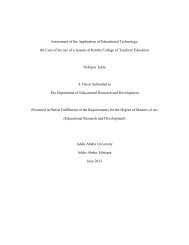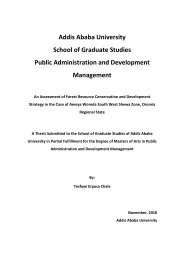FACTORS THAT CONTRIBUTE TO THE PROBLEMS EFL ...
FACTORS THAT CONTRIBUTE TO THE PROBLEMS EFL ...
FACTORS THAT CONTRIBUTE TO THE PROBLEMS EFL ...
Create successful ePaper yourself
Turn your PDF publications into a flip-book with our unique Google optimized e-Paper software.
also reported, “What I have learned English through out my high school was in<br />
Amharic, so I don’t think I have got good background knowledge of English.”<br />
The data of the students’ interview indicated that there is a problem related to the<br />
learners’ English proficiency. It seems this problem which made them to lose<br />
confidence in joining the English department and in enrolling in the target course.<br />
In fact, further study is needed to find out the specific problems concerning the<br />
learners’ English proficiency. The case indicates, however, a lot should be done to<br />
make an increase in the level of the students’ language competence that lead to<br />
direct boost in their confidence and their future professional status.<br />
Q4: What were the factors that affected your listening comprehension while you<br />
were taking the listening course (FLEE 105)?<br />
In the data of the students’ interview, some listening difficulties such as affective<br />
barriers, learning difficulties related to individual learner's information processing,<br />
English proficiency, and problems centering the nature and procedures of strategy<br />
use; and problems of the listening materials were identified. After the analysis of<br />
the data obtained from the students’ interview, three major categories of listening<br />
difficulties were derived, including 14 minor groups. The categories are listener,<br />
speaker and text factors. An overview of the findings shown in Table -7.<br />
Category<br />
Table-7: <strong>EFL</strong> listening barriers identified through the interview<br />
58<br />
Factors<br />
Listener 1. Affective factors<br />
2. Lack of background knowledge<br />
3. Fatigue<br />
4. Poor English proficiency<br />
a) Limited English vocabulary<br />
b) Poor knowledge of grammar<br />
c) Poor listening ability<br />
5. Difficulties related to listening strategies<br />
a) Forgetting to apply strategies<br />
b) Inability to apply strategies<br />
c) Ineffective use of strategies<br />
Speaker 6. Spoken feature of the native speakers<br />
7. Fast speech<br />
8. Number of speakers and overlap of speech<br />
Text 9. Difficulty of listening materials<br />
10. Difficulty of the concept of the listening message


